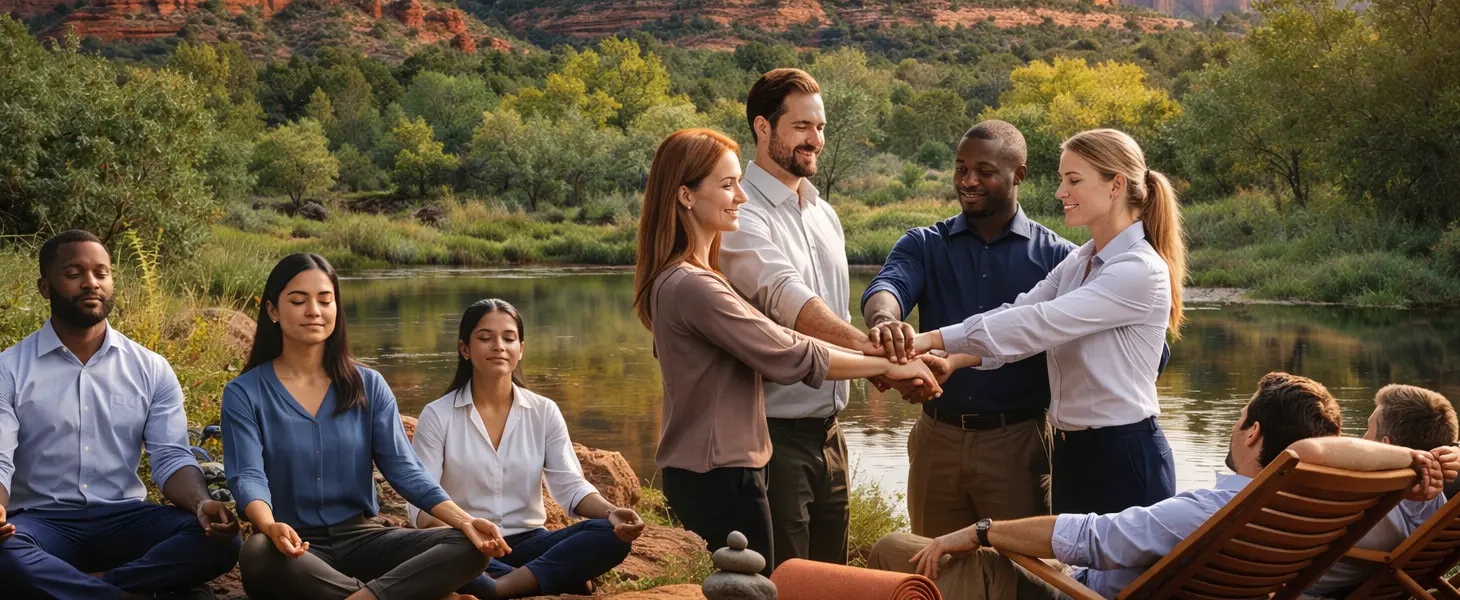Can a broken relationship be mended?
By Ilchibuko Todd
Sedona Mago President
Relationships are difficult. Regardless of the connection, human relationships can deteriorate under pressure. Romance, family, friendships, professional—working through frayed relationships is part of the human experience, at some point or another.
Before we understand techniques to fix our relationships, first we must discuss how and why they become damaged. Problems most often arise when we look at others: other romances, other friendships, other families, etc. We analyze snapshots of other relationships and obsess on what we’re missing or not getting from ours.
Unfortunately, this path leads only to negativity.
It’s hard to determine exactly when relationships become damaged or who “started” the damage, but they are always made worse by a common culprit: ourselves. When our True Self becomes clouded with doubt, negativity and destructive insecurities, all hope of relationship repair is lost.
When we focus on others—like when a romantic partner hurts us or when a family member neglects us—this is what we call a “victim mindset.” Placing blame solely on another stops us from addressing our internal pain and trauma, keeping us from truly improving. The burden of responsibility must be shared honestly between you (your True Self) and your counterpart.
The solution to repairing your relationships starts with you. You may be asking, “why do I need to change?”
At Sedona Mago, we believe the pathway to understanding the world often starts within. We ask our True Selves to find the answers that we seek (often because we already know them, deep inside).
The process of finding your True Self can be arduous and emotional. So much so, it’s the first course we recommend our guests take with us at Sedona Mago. Whether you’ve found your True Self, are just starting to hear your inner voice, or have yet to start that journey, consider the following tips when seeking to mend a damaged relationship:
1. Love yourself
It may sound stereotypical, but this is a foundational step to resolving damaged relationships. Whether the relationship is fully repaired or not (you could even decide to end the relationship completely), there is a fundamental truth that will never change: you have value.
Broken relationships may influence you to believe that you’ve lost value or that your value has been taken from you in some way. No matter how negative you may feel, your value can never be controlled or removed.
Your connections to other people are meant to enhance your happiness, not provide it for you. When you love yourself and all that you truly are, you can communicate your clearest intentions to others—and heal your relationships, if you choose.
2. Write your own story
In other words: don’t write someone else’s. When you assume your counterpart’s intentions, you limit opportunities for change and repair.
“My partner is going to disappoint me by doing ______.” “If I complain, they’re going to say _____.”
This kind of negative self-talk is part of the victim mindset that holds your True Self back. If you allow your victim mindset to take over, your expectations for others will rise, and it’s unreasonable of us to demand change from others.
Instead, try self-talk that is positive and leaves room for opportunity. “I’m going to listen to my inner voice and share that voice honestly.” “I’ll let my partner respond and fully consider their emotions.”
3. See yourself, not your beliefs
It’s difficult to change the things you believe in. Much like learning to love yourself, you must learn to address the things you consider “sacred.” Understanding the evolution of yourself comes with the departure and reformation of your beliefs.
This short but impactful idea runs through much of what we share at Sedona Mago.
4. Understand your emotions
And, more importantly, how to process them. How often are we taught in school to learn about our emotions and how to deal with them? How many of us have learned that our emotions are valid and normal?
Sometimes, it feels like no one has an understanding of emotions. Our parents, friends, romantic partners… when we live in a world where our emotions go unchecked, we start to believe we are our emotions. When that happens, our potential for strong relationships is limited.
Give yourself the opportunity to grow with your emotions by observing them, giving them validity, then letting them pass. Here, in the “master mindset,” we have the self-management that leads to better relationships.
5. Knowing what “love” is
There are different levels and kinds of love. We’ve written extensively about what makes love “unconditional” or “true,” but it’s important to remember that attachment is not synonymous with love.
Attachment is about gain—getting affection, attention, gratification and satisfaction. Emotional love is a roller coaster that changes every moment of every day like the weather.
The love needed to repair damaged relationships is the love for your True Self; the kind you always have. Knowing this distinction puts you on the path toward positive connections.
6. Raise your state of consciousness
In the “victim mindset,” you’re controlled by the actions of others.
In the “master mindset,” you accept and understand your emotions.
Above that is the state of consciousness we call “abundant mindset.” In this level of being, you constantly recognize the immense availability of opportunity open to you. Every moment is at your disposal. You are blessed with the gifts of time, choice, love and life. When you raise your consciousness to this level, you will not expect these things from your relationships—leaving more reasonable expectations for your counterparts.
7. Be vulnerable
Allowing yourself to be honest sounds simple, but it can be one of the most challenging things you ask of yourself. Especially when communicating with a person you trust, your relationship deserves your clearest self. When you communicate honestly, it becomes impossible to blame others. Sharing your True Self is core to sharing the burdens of a relationship.
Share without interrupting. Let your heart be willing. Accept what your counterpart says and let go of what is “right” and “wrong.” Shed your intrinsic desire to be correct and simply acknowledge their opinion. Neutralize conflict by understanding that in any relationship, the other person is just like you: flawed, valuable and deserving of love.
Navigating relationships can be a stressful, difficult task, especially when they’ve undergone negativity or trauma. We sincerely hope these ideas have helped you rethink what you know about relationships, how you can communicate with others stronger and understand a little about yourself in the process.
But above all, from all of us at Sedona Mago, we hope you know that you deserve happiness. The love that you give is the most powerful tool you have—and we hope you receive it in turn.
For an in-person experience on repairing and improving relationships, we invite you to visit Sedona Mago for our Transform Your Relationships course. Whether you visit alone or with a loved-one, this course is uniquely designed to help you uncover the root of your connections and shed the toxicity that clouds them.
Recent Posts




